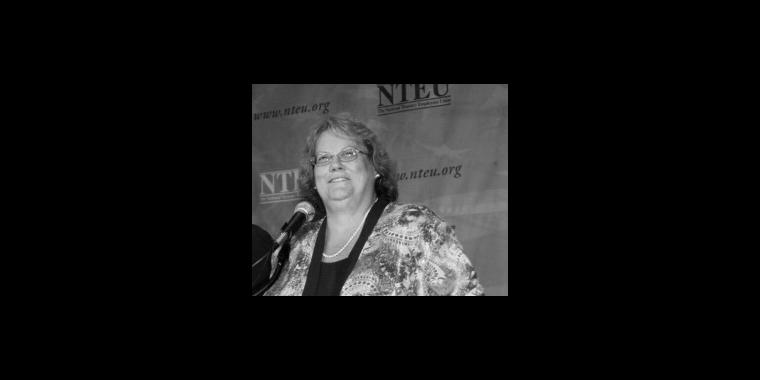
Kelley: Addressing Federal Workplace Issues Vital to Dealing with Nation’s Problems
4/23/09: With the federal workforce poised to play an increasingly important role in helping resolve the nation’s serious problems, it is vital that Congress and the administration address a number of key workplace issues—particularly dealing with recruitment and retention, the leader of the nation’s largest independent union of federal employees told a House subcommittee yesterday.
“These are exciting times in the federal service,” President Colleen M. Kelley of the National Treasury Employees Union (NTEU) told a hearing of the House Oversight and Government Reform Subcommittee on the Federal Workforce. “The extent to which our government will be successful rests in large measure on the federal employees charged with carrying out the critical missions of their agencies,” she added, noting that providing employees with a meaningful voice in the workplace through a return to labor-management partnership is central to that effort.
Review President Kelley's testimony here.
These are among the other workplace issues the NTEU leader called on Congress to address:
• Fair pay. “Federal employees are willing to do their part, but they deserve parity in pay with military personnel, as has been the case for almost two decades.” The White House has proposed a 2.9 percent 2010 pay raise for those in the military and a two percent raise for federal civilian employees;
• Widespread collective bargaining rights. “NTEU strongly supports H.R. 1881 to provide collective bargaining rights and civil service protections to employees of the Transportation Security Administration, who have the lowest pay and the highest injury and attrition rates in the government,” she said;
• Affordable and accessible health care. The Federal Employees Health Benefits Program (FEHBP) “has good elements, but it is not without serious problems,” Kelley said. These include constant premium increases over the past eight years, benefit and coverage cutbacks, higher co-payments and the addition of new plans—such as high-deductible health plans—that undermine the integrity of FEHBP. She also called for an increase in the government’s share of premiums;
• Employee benefits. Kelley repeated NTEU’s support for legislation extending the age for dependent health insurance coverage past age 22, as some states have done; said Congress should allow federal employees to include their same-sex domestic partners under FEHBP; and urged approval of H.R. 626, which would provide four weeks of paid parental leave for the birth or adoption of a child; and
• Federal hiring practices. The NTEU leader said that part of rebuilding agency workforces is making the hiring process more user-friendly and faster. But, she added, that must be done while maintaining federal merit principles. On that subject, she called the Federal Career Intern Program, a limited-focus hiring alternative that is being misused across government to undercut merit principles, “one example of a hiring alternative that is failing and needs to be ended.”
President Kelley took the occasion of her testimony to thank the subcommittee and its chairman, Rep. Stephen Lynch (D-Mass.), for their roles in securing House approval of H.R. 1804 and H.R. 1256, a package of bills allowing those covered under the Federal Employees Retirement System to count unused sick leave toward their retirement annuity; correcting a problem with part-time service for those covered under the Civil Service Retirement System; and making important improvements in the Federal Thrift Savings Plan, including automatic enrollment and a Roth contribution fund for those who choose it.
